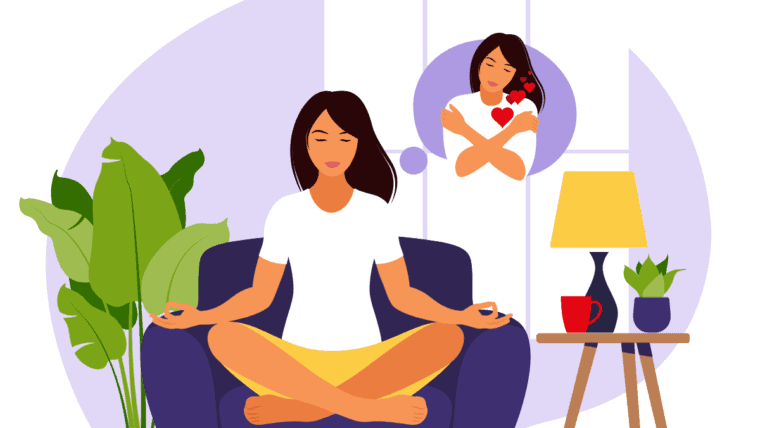We all have those situations at work or with family where we feel emotionally challenged or attacked and want to run and hide. We put on a brave face and pretend we’re “fine.” It’s called vulnerability, but is there anything we can do about it?
The good news is that feeling vulnerable doesn’t always have to be a miserable experience. By having awareness and a toolbox of techniques, you can reduce the intensity and duration of the feeling. I experienced vulnerability recently at work and took it as an opportunity to explore what it meant to me. I set out to learn how to process that icky feeling. After a bit of research, I had a glimmer of optimism. It appears I am not the only one with this experience, and in fact, the vulnerability could be a portal into healing.
Here are six steps to greet vulnerability when it shows up in your life.
Get Clear on What It Means To Be Vulnerable.
According to Webster’s dictionary, vulnerability is:
The quality or state of being exposed to the possibility of being attacked or harmed, either physically or emotionally.
In her book, Braving the Wilderness: The Quest for True Belonging and the Courage to Stand Alone, Brene’ Brown describes vulnerability as ‘Uncertainty, risk, and emotional exposure.’
She says, ‘Vulnerability is not weakness; it’s our most accurate measure of courage.’
Brene’ explains that her team of researchers can measure how brave someone will be, based on how willing they are to be vulnerable. To show up and express true emotions.
The possibility of being emotionally vulnerable is a type of fear. However, when we embrace this experience, it can become the place where bravery is born.
But for most of us, vulnerability makes us run in the opposite direction, not towards it. What if people see we’re (insert limiting belief) silly, not the right person for the job, don’t know what we’re doing, scared, don’t fit in, underqualified, etc? No one wants to be exposed.
We’re all pulling all levers to make noise, smoke, and flashy lights hoping that Toto never comes along to reveal that we are, in fact, flawed. Just like the wizard of oz. The great wizard was so afraid of being exposed that he manufactured a version of himself that was all-powerful and larger than life. However, he was just like us, a human. He lived behind that curtain in a permanent state of fearing vulnerability.
Pinpoint the Likely Situations You Will Feel Vulnerable In
We all feel vulnerable in different situations depending on our past experiences and what we perceive our weaknesses to be. The next step is to notice and make a list in your journal of the most common situations you find yourself feeling vulnerable.
Here is a list of everyday situations people may feel vulnerable
- Public speaking
- Meeting new people
- Job interviews
- Having to discipline your children
- Going on a first date
- When you or a loved one is ill
Usually, where you feel vulnerable is the situation that was left unchecked, unhealed, or left stuck right back in 5th-grade science class.
A situation that repeatedly brings up that vulnerable feeling for me personally is when someone expects me to “delve deep into the details” of ANYTHING! I’ve always struggled with details, spreadsheets, point-by-point checklists, and itemizing; it is equivalent to my Kryptonite.
My Recent Vulnerability Experience
When a partner recently asked detailed questions for a new software project at work, I FROZE. I wasn’t prepared for the meeting and felt like I was drowning in a sea of vulnerability. I couldn’t answer all the questions, and no amount of “creative framing” could save me. Sweat beaded at my brow, and the lump in my throat made it impossible to speak. I was catapulted back In time to the elementary school math teacher calling on me when I wasn’t paying attention. I mumbled my words, reached for some explanation, and forgot that I was a grown-up now.
The emotional pain was intense for such a minor issue. Somehow my adult knowledge that it was OK for me to say, “I don’t know”, had vanished. I vowed to be better prepared the next time I felt this way. (So you can be better prepared when those things come up for you.) I thought this was an excellent opportunity to explore this concept and write this blog.
Review your list of the situations you feel vulnerable to; Who was involved in the situation? What was it that made you feel vulnerable? Can you detect a pattern? Be your vulnerability detective and see if you notice similarities.
Be Willing To Expose Your Feelings
There is a saying that what we resist persists. The more we try to deny what we feel, the more persistent that feeling will become. Start by accepting how you feel personally, “I’m feeling vulnerable, insecure, embarrassed, angry”, or whatever that feeling is, and then share it with someone you know will hold space for you without judgment.
Reaching out to share your experience may make you feel even more vulnerable. You may think if you tell a friend or family member you’re feeling insecure or vulnerable, they may respond with, ‘Oh, don’t tell me that; get out of here; I don’t want to be around someone vulnerable.’ (by the way, is that what you would say to someone who shared that with you? NOPE! )
The more likely scenario is that they will say, ‘Oh, honey, I’m sorry to hear that. Let me make you some tea. Let’s chat.’ We may think we should be alone when vulnerable so we don’t ‘impose’ or ‘burden’ them. Not everyone will greet you with a cup of tea, so find someone safe enough where you want to open your heart. Studies have proven that saying how you feel reduces the negative impact of that emotion by decreasing the stress response.
Relax and Release Those Vulnerable Feelings
In Michael Singer’s book The Untethered Soul, he shares a method for handling these uncomfortable vulnerable feelings (and all uncomfortable feelings, for that matter). His teachings focus on allowing ourselves to experience and feel the feelings without “the story” we tell ourselves about it. His relax and release approach is a way of allowing emotion to move through us. He points out that we relax, breathe, and release emotion when we notice it. This process returns the energy we used to deny and stuff the feelings back to our true selves. According to Singer, this method is the highest form of spiritual practice, the daily routine of letting go.
“Watch that sensitive part of you feel disturbance. See it, feel jealousy, need, and fear. If you pay attention, you will see that they are not you; they are just something you’re feeling and experiencing,” writes Singer.
Then Singer reminds you that you are a different person internally than externally. Internally, you observe what is going on in your life. You can witness and even appreciate the vulnerable experiences you’re encountering when you’re at your centre or core. You sit in a seat of awareness and watch these disturbances and emotions pass you by. You become aware of the drama taking place in the movie of your life.
Give Yourself Support In The Situations Which Make You Feel Vulnerable.
After identifying the situations that make you feel vulnerable, you can change how you view the problems. It takes some practice and gives you that unique perspective. A meditation practice can assist with getting enough space to see issues from a different viewpoint.
Similarly, you can be the support person in your own life, don’t forget to demonstrate compassion for yourself. If you know you may find yourself in one of these situations, give yourself time to prepare, plan, visualize the situation going well and imagine what someone who was the opposite of vulnerable do in that situation.
You are an incredible, complex, fantastic human. The fact is, we’re all navigating a world of uncertainty, and you deserve LOVE from others and especially from yourself. If and when you still feel vulnerable, be gentle with yourself.
Vulnerability is an incredible way to be human and connect.
It’s the birthplace of bravery.



